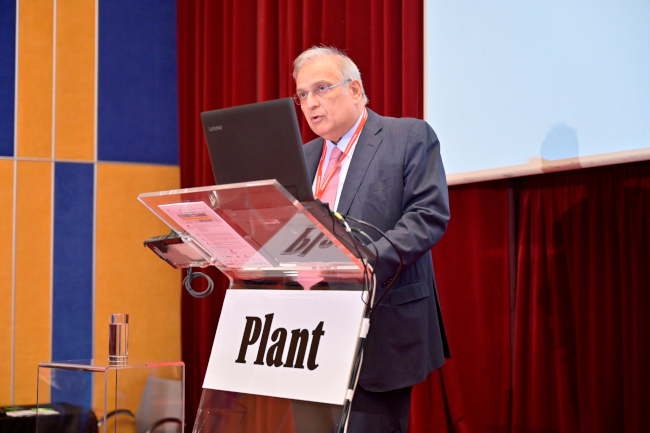 3 minutes
3 minutes
The HELPE Group has embraced and actively supports the national efforts towards Sustainable Development and Energy Transition to a low carbon economy, stated the Chairman of the HELLENIC PETROLEUM Board of Directors Ioannis Papathanasiou during his address at the “Climate Change Conference 2019”.
Mr. Papathanasiou said that the HELPE Group fully endorses the government’s environmental targets and the reviewed version of the National Plan for Energy and Climate (NPEC), which is expected to be brought into effect by the end of the year. The latter stipulates the closing of all lignite power plants by the year 2028 and bumping up the share of Renewable Energy Sources to 35% by 2030. Furthermore, the NPEC will provide a series of incentives promoting energy saving, promoting electromobility and adopting circular economy policies and will include provisions aimed at tackling energy poverty.
The HELPE Group COB said that fossil fuels are expected to become less competitive in the coming years due to the high costs associated with carbon emissions. However, he continued, petroleum will continue to represent 33% of the total energy demand until the year 2050.
Presenting key aspects of the HELPE Group strategy, Mr. Papathanasiou stressed: “In the context of the energy transition currently underway within the Group, we have set the following priorities: upgrading the infrastructure in our power and fuel plants with a view to increasing energy efficiency and reducing CO2 emissions; undertaking investments that will help promote the use of Renewable Energy Sources and of second and third-generation biofuels; gradually replacing petroleum-based products with low carbon alternatives; and, finally, fostering research and developing technologies and practices also directed at reducing our carbon footprint. In addition, we are implementing comprehensive schemes for waste reduction, recycling and reuse at the distilleries, retail points and across all subsidiaries and have developed synergies with the academic and scientific communities aimed at promoting scientific training and advancing innovative solutions for the production of low or zero-carbon products.”
According to the figures Mr. Papathanasiou presented, the Group can already show consistent improvement in its environmental performance. The key carbon emission indices (per ton supplied) have been reduced by at least 30% in the last 5 years, while last year saw a significant improvement in the percentage of water recycled and reused as compared to 2017. Additionally, the total percentage of upcycled waste coming from the facilities was at least 75%, while the company’s target is for the figure to be consistently above 85% in the future.
In the medium term, the Group is centering its efforts on substantially growing its presence in the Renewable Energy Sources sector; improving its position in the natural gas market; and on its ventures in the field of Hydrocarbon Exploration and Production. With regard to the latter, Mr. Papathanasiou stressed that “the protection of the environment, in full compliance with the strict provisions set forward by the European and national legislation, will be high on our list of priorities and ensured by our adoption of international best practices”.
In conclusion, Mr. Papathanasiou expressed the certitude that the Group will continue to play a leading role in energy developments both within Greece, the Balkans and the wider Southeastern Mediterranean region.